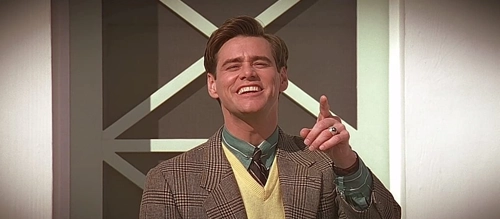 The film’s influence is almost incalculable. Not just direct references to it in movies in the years since, but even on psychology; “Truman Syndrome”, where someone has the unshakeable delusion that their life is a fiction manipulated by others, is now a real and diagnosable thing. Christof states that “We accept the reality of the world with which we’re presented”. Many sci-fi writers – Philip K Dick, Ira Levin, Michael Crichton – have based their popular stories around the concept of simulating entire worlds, and the media we consume has taught us to be aware of fakery and perhaps pay too much attention to elaborate conspiracy theories.
The film’s influence is almost incalculable. Not just direct references to it in movies in the years since, but even on psychology; “Truman Syndrome”, where someone has the unshakeable delusion that their life is a fiction manipulated by others, is now a real and diagnosable thing. Christof states that “We accept the reality of the world with which we’re presented”. Many sci-fi writers – Philip K Dick, Ira Levin, Michael Crichton – have based their popular stories around the concept of simulating entire worlds, and the media we consume has taught us to be aware of fakery and perhaps pay too much attention to elaborate conspiracy theories.
On balance, this is probably Jim Carrey’s finest performance. He gets to goof off as a stereotypical quirky sitcom protagonist and then become increasingly unhinged as Truman starts to lose a grip on his reality, but there’s an innate tragedy to his character who has never really been allowed to live. His inevitably painful journey to the truth results in Carrey’s strongest dramatic turn alongside Eternal Sunshine of the Spotless Mind. We love Truman just as his in-world audience does, and we want him to be happy and for him to succeed even if it means saying goodbye as he joins the throng of the real world.
24/7 entertainment that was only just becoming available when The Truman Show debuted in 1998 is now commonplace and expected by audiences, with reality television and semi-scripted “simulated reality” TV obsessively being watched around the world. Who knows whether it would have taken off to such an extent without the one-two-punch of ‘Big Brother’ and Peter Weir’s film. Even divorced from its titanic cultural influence, The Truman Show remains a meticulously crafted, stylistically subversive and powerful tragicomedy about what it means to live.
Score: 22/24

